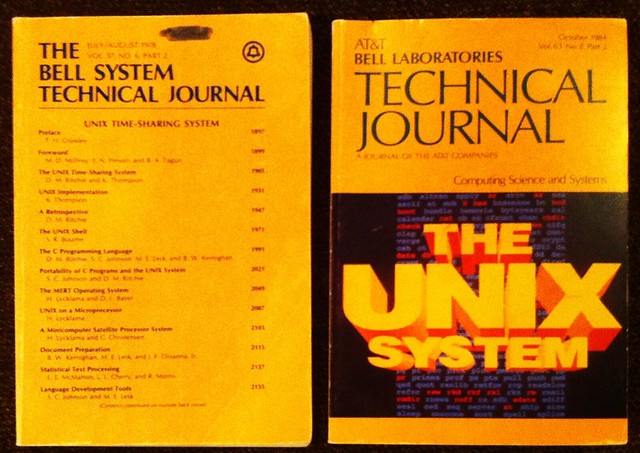Microsoft and Unix redux
November 18, 2011 at 9:19 PM by Dr. Drang
In an otherwise insightful critique of Malcolm Gladwell’s assertion that Steve Jobs was a tweaker rather than a visionary, John Gruber says this about Bill Gates:
Gates was (and remains) a large-scale visionary in his own right. He was simply never a product visionary. But the whole idea that software in general could be more valuable than hardware — or even just valuable, period? Gates. The man pioneered the concept of selling software. The idea that a software platform could be created that ran everywhere, on almost all hardware? Gates.
I agree with the software v. hardware thing, but did Gates really pioneer the notion of a software platform that could run on almost all hardware? No.
As I said in that post in September, Unix was there well before Microsoft.
Microsoft has always wanted to be seen as an innovator in developing operating systems that ran on computers from different vendors. Unix is an inconvenient truth that interferes with that image.
In fact, neither DOS nor Windows ever “ran everywhere, on almost all hardware.” Microsoft pretty much stuck with Intel hardware and Intel workalikes. I recall Windows NT running (poorly, I think, and not for long) on PowerPCs, the DEC Alpha, and some other RISC chips (Wikipedia says the MIPS R4000) but non-Intel processors were strictly a sideline.
Unix, on the other hand, really did run on a wide range of hardware. The well-known NUXI problem originated when Unix was ported from its initial PDP hardware to a system with different endianness. My prized copy of the special Unix issue of the Bell System Technical Journal has two papers about porting Unix to non-PDP systems, and that was in 1978, two years before Microsoft bought QDOS and turned it into PC-DOS for IBM.
No question, Gates was a visionary in recognizing the primacy of software over hardware, and—most importantly—he acted on that vision. But when it comes to operating system portability, he was a follower. Unix did it first and did it better.

